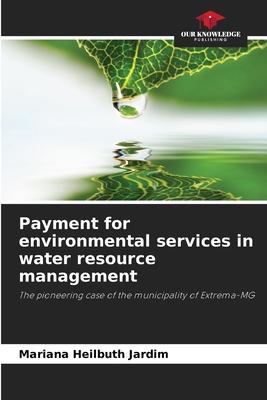The main objective of this study was to analyze the potential of Payment for Environmental Services (PES) to generate socio-economic and environmental benefits in water resource management, when forest and water interact on small rural properties. Water is increasingly becoming a strategic resource in terms of vital, economic and geopolitical interests. With the increase in environmental degradation in parallel with the growing demand for water for various uses, there has been a need to rethink public policies, especially with regard to environmental management instruments. The current scenario requires management from the perspective of various economic, social and environmental aspects, which has led to the strengthening of a new management strategy for water resources: Payment for Environmental Services. PES can be considered a good strategy to ensure the practice of sustainable farming and sustainable forest management, which directly influence the conservation and integrated management of water and forest resources in a watershed, as happened in Extrema-MG.
| FindBook |
有 1 項符合
Payment for environmental services in water resource management的圖書 |
 |
Payment for environmental services in water resource management 作者:Heilbuth Jardim 出版社:Our Knowledge Publishing 出版日期:2024-02-28 語言:英文 規格:平裝 / 212頁 / 22.86 x 15.24 x 1.22 cm / 普通級/ 初版 |
| 圖書館借閱 |
| 國家圖書館 | 全國圖書書目資訊網 | 國立公共資訊圖書館 | 電子書服務平台 | MetaCat 跨館整合查詢 |
| 臺北市立圖書館 | 新北市立圖書館 | 基隆市公共圖書館 | 桃園市立圖書館 | 新竹縣公共圖書館 |
| 苗栗縣立圖書館 | 臺中市立圖書館 | 彰化縣公共圖書館 | 南投縣文化局 | 雲林縣公共圖書館 |
| 嘉義縣圖書館 | 臺南市立圖書館 | 高雄市立圖書館 | 屏東縣公共圖書館 | 宜蘭縣公共圖書館 |
| 花蓮縣文化局 | 臺東縣文化處 |
|
|
圖書介紹 - 資料來源:博客來 評分:
圖書名稱:Payment for environmental services in water resource management
|











